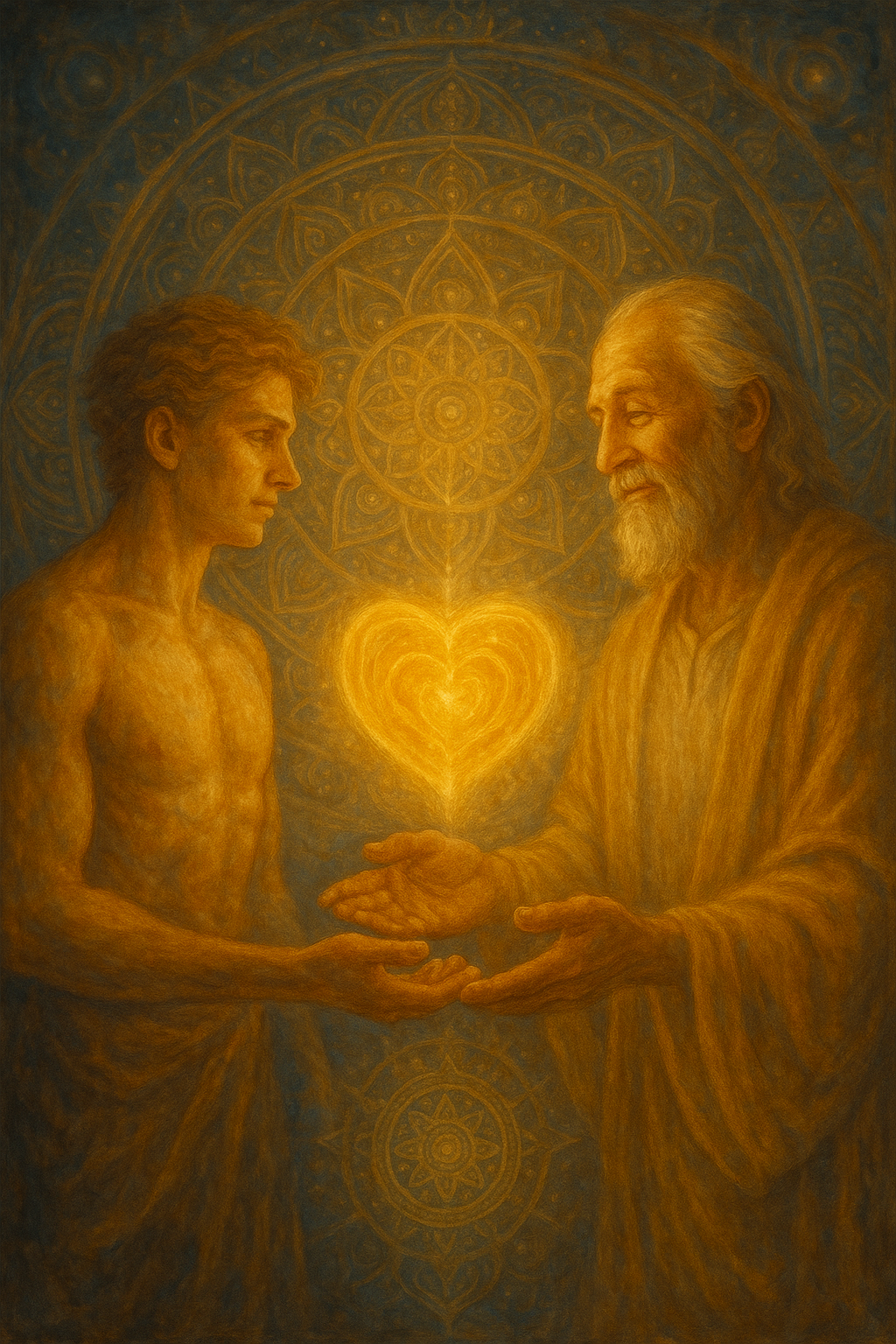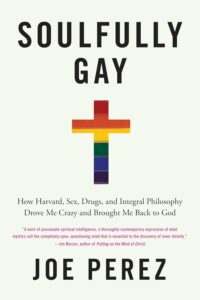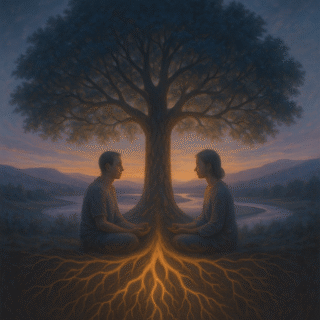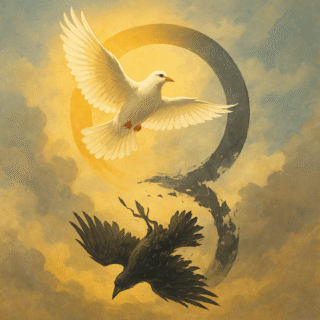GAY LOVE: EXALTED OR CONFUSING?
Sometimes I am asked—directly or indirectly—if my vision of gay love as sacred resonance is out of touch. Too noble. Too pure. Too disconnected from the gritty, painful, and yes, sometimes profane reality of what it means to be a gay man in the world today.
And to be honest, I’ve asked that of myself.
Not as an intellectual exercise, but from the ground of lived experience—painful, confusing, and real.
Let me begin with a story. Then I’ll explain why, in spite of everything, I continue to speak of gay love in such exalted terms.
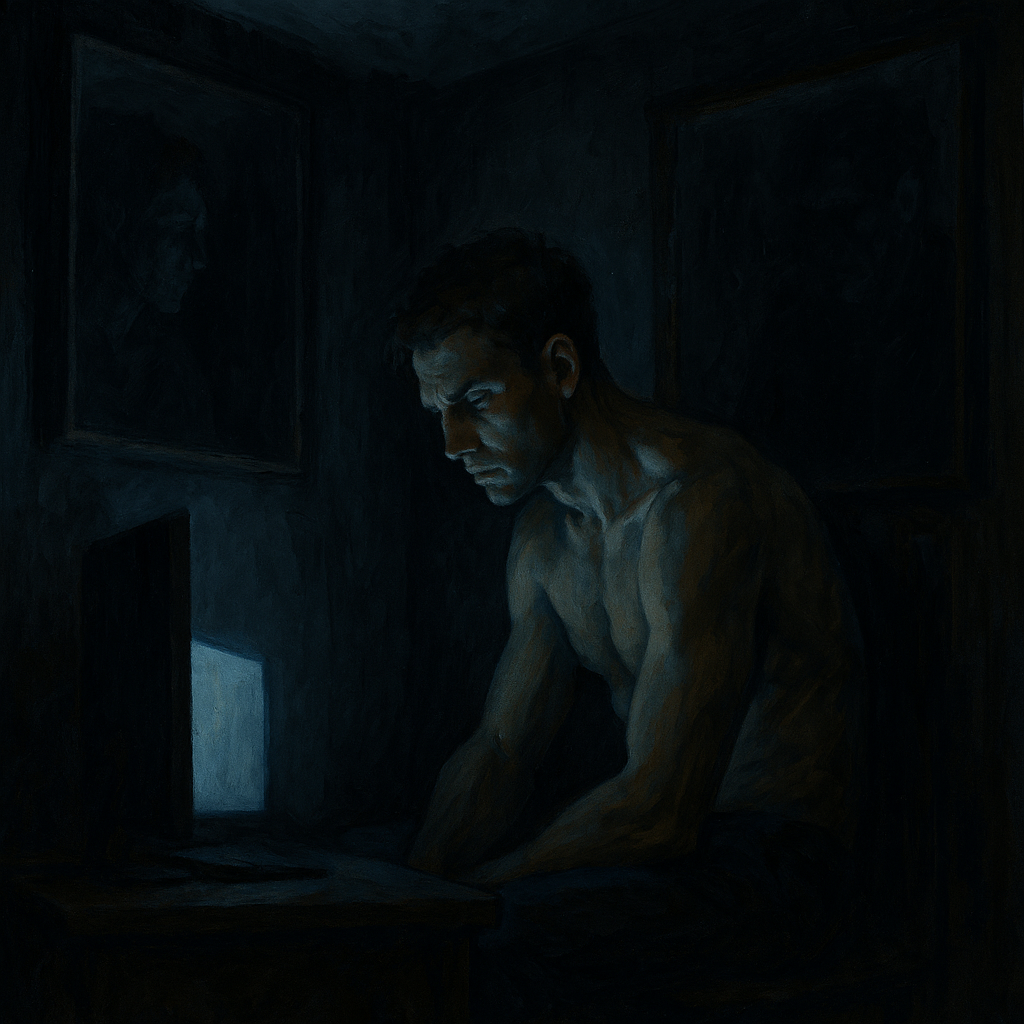
Shame, Fantasy, and the Fractured Self
There was a period in my life when I found myself troubled—deeply so—by sexual fantasies that I couldn’t understand and couldn’t share. They disturbed me. I feared what they said about me. And so I buried them. I cloaked them in silence and shame.
But silence is not a neutral state. What we do not speak of still speaks—only now, it whispers in the language of isolation and fear.
Pornography became a kind of lifeline. Not just for pleasure, but for reassurance: Look, I’m not the only one. Other men feel this way too. For a time, that was a comfort. But soon, it became more than comfort. It became a habit. Then a dependency. Then an invisible prison.
I had turned to pornography as a release valve for my repressed desires—but what I didn’t see was that the pressure kept building. The fantasies, unchecked and unintegrated, grew in intensity, size, and gravity. They began to distort my sense of self. They grew out of proportion to the totality of my being.
Simply put: my spirit became warped by desire—not because I desired, but because I forgot who I was beneath the desire. And because those desires were wrapped in shame, they began to shape a false image of me—chaotic, fragmented, always craving, never home.
Remembering Who I Am
I was only able to move beyond that painful cycle not by moralizing against myself—not by scolding the boy inside me who was confused, lonely, and searching—but by remembering who I am.
And who is that?
It is the “I” who is Love.
Not as a sentimental slogan, but as a spiritual truth.
Not just a lesson from childhood Christianity, but a deep, living pulse that has remained with me, even in what I will somewhat inaccurately call a “post-Christian” awareness practice.
To be is to love. To exist is to be Love in expression.
My teaching about gay love as sacred resonance wasn’t false, it was simply not understood and practiced as often as it could be. Theory without practice is dead.
When I forgot that, I became a wild and chaotic Eros—erotic energy severed from its ground. I became unloving, even as I chased hot, sexy bodies in the name of pleasure. I became hungry, not for connection, but for distraction. For conquest. For disappearance.
But when I remembered, slowly, patiently—through practice, through awareness—I began to reconnect the threads. I stopped indulging pornography to the point of forgetting myself. I brought light to the shadows. I integrated the fragments.
A Response to the Critique
And so, when someone critiques my writing—saying it elevates gay love to an unrealistic spiritual height—I say: yes, there’s truth in that critique.
Gay culture, especially for men, often wrestles with alienation, commodification, hookup culture, and trauma. I’ve lived it. I’ve seen how many of us navigate lives that are shaped not by divine resonance, but by numbness, craving, and commodified intimacy.
But the presence of shadow does not negate the existence of light. In fact, it makes the light more necessary, more urgent.
My vision of sacred gay love isn’t a denial of messiness—it’s a framework for holding it. It’s not offered as a description of what already is, but as a vision of what’s possible when we begin to remember ourselves again. Not just as sexual beings, but as spiritual beings who love. And who long to love well.
And here’s the deeper, nondual point: even the hookup, even the porn addiction, even the dark fantasies can be transfigured—not by repression or shame, but by awareness. When we strip away the moralism, what remains is longing. A yearning for contact. A glimmer of recognition. Sacred Resonance.
That longing is not the enemy. It is the seed of the sacred.
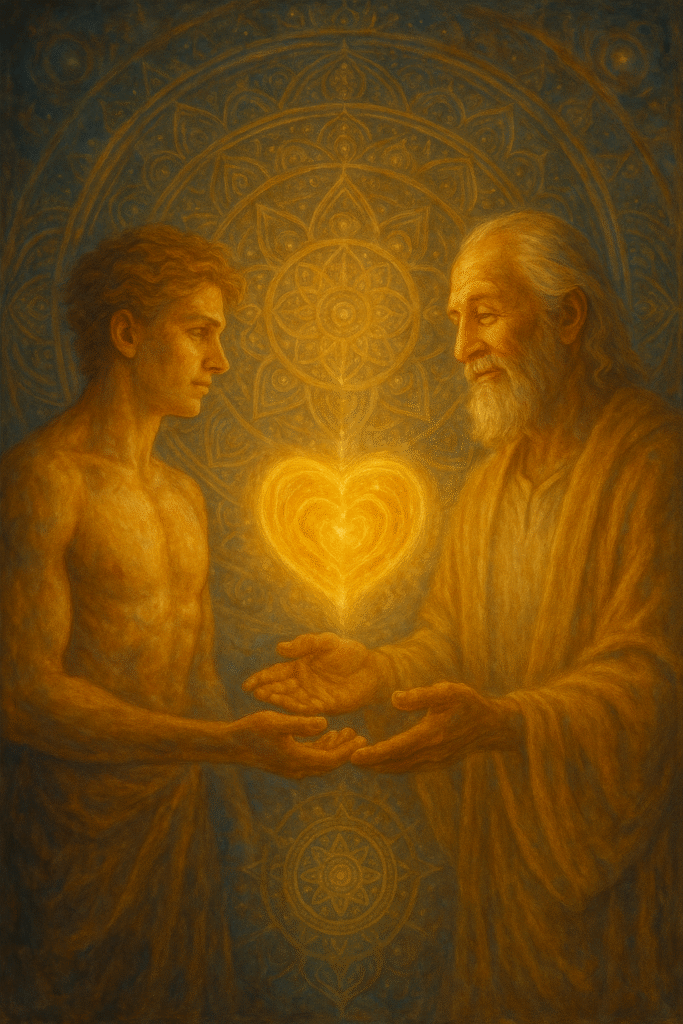
Bridging Eros and Agape
Philosophically speaking, this is the work of bridging Eros and Agape—uniting the longing for transcendence with the rootedness of self-immanence.
Eros without Agape becomes manic and disconnected. Agape without Eros can become passive and cold. But when they meet—when erotic longing is grounded in love’s self-giving heart—something extraordinary happens.
We become whole.
This is a partial and imperfect realization, but not theoretical for me. It is what I have had to do to survive. To love again. To be in integrity.
So, no—my vision of gay love is not naïve. It’s hard-won. It is the fruit of spiritual practice, psychological healing, and deep inner work. It is not a fantasy. It is a remembering.
The remembering that I am Love.
And so are you.
